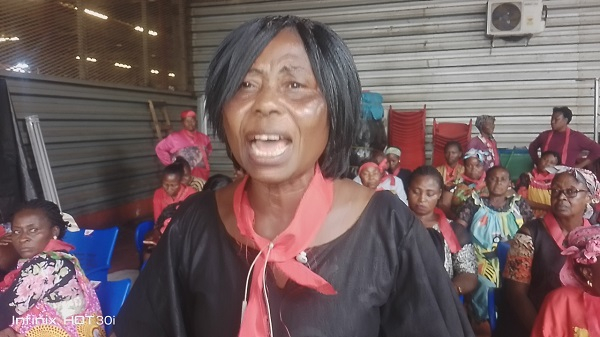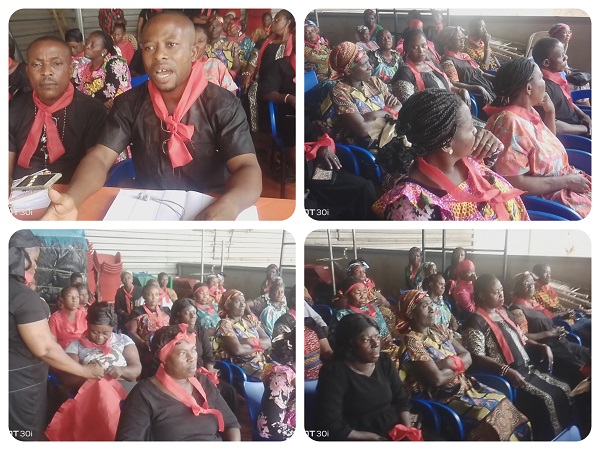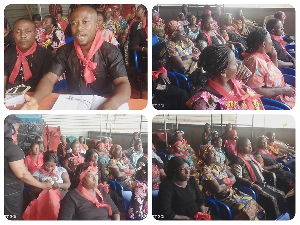 The memorial service was for its members who have died, reportedly due to harsh conditions
The memorial service was for its members who have died, reportedly due to harsh conditions
Marking a decade of loss and hardship, the Kejetia Petty Traders Association recently held a solemn memorial service for over 100 of its members who have died, reportedly due to the distressing and unregulated conditions they face while trying to earn a living.
The event, a poignant reminder of the human cost of the situation, also served as a desperate plea for intervention and fair allocation of spaces in the Kejetia Redevelopment Phase Two Project.
The memorial, attended by traders, grieving families, and association leaders, underscored the continued plight of the remaining traders, many of whom still operate under precarious circumstances.
Chairman of the Kejetia Petty Traders Association, Emmanuel Kwarteng, speaking to the media, painted a grim picture, revealing that the association’s membership has plummeted from 2,283 to a mere 793, with the difficult conditions driving many to their deaths.
Of the current 793 members, Kwarteng lamented that only 160 have been allocated permanent trading spaces in the redeveloped Kejetia Market, leaving 632 members struggling to survive in unsafe and unsanitary locations – exposed on roadsides, beneath temporary shelters, and directly under the scorching sun and heavy rains.
“This frustration, the hardship, and lack of a proper place to trade have sadly contributed to the deaths of over 100 of our members over the years. It is very painful and heartbreaking,” he stated.
Kwarteng emphasised the traders’ consistent contribution to the Kumasi Metropolitan Assembly (KMA), noting their daily ticket payments of GH¢3 per member significantly bolster the Assembly’s revenue. He argued that this loyalty and contribution should not be overlooked.
“We have never defaulted in paying the KMA trading tickets…We deserve better,” Kwarteng implored. He appealed to President John Dramani Mahama, the Ashanti Regional Minister Dr Frank Amoakohene, and Kumasi Mayor Richard Ofori Agyemang Boadi to intervene on behalf of the aggrieved traders.
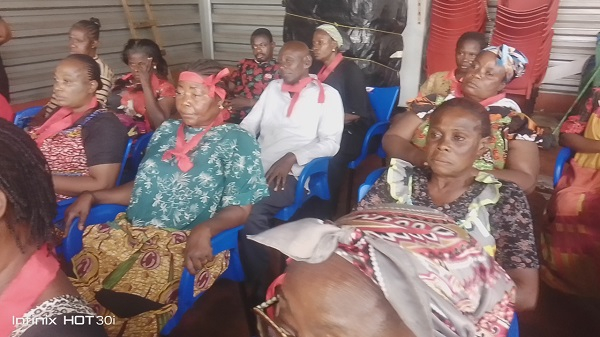
Kwarteng reiterated that the association is not seeking special favours, only a fair opportunity for its members to trade safely and with dignity. “We have suffered enough. We have buried too many of our members. We are pleading with the government and city authorities to come to our aid now,” he concluded, his voice filled with urgency and despair.
Meanwhile, the core of the traders’ plea is for consideration in the Kejetia Redevelopment Phase Two Project. The association’s leadership is urging authorities to acknowledge their sacrifices and the tragic loss of life by ensuring their members are not excluded from the allocation of new stores.
Speaking with deep emotions, some of these traders recounted the daily risks and indignities they endure, trading in hazardous environments vulnerable to accidents and the elements. They asserted that these brutal conditions have directly contributed to the deaths the association is now mourning.
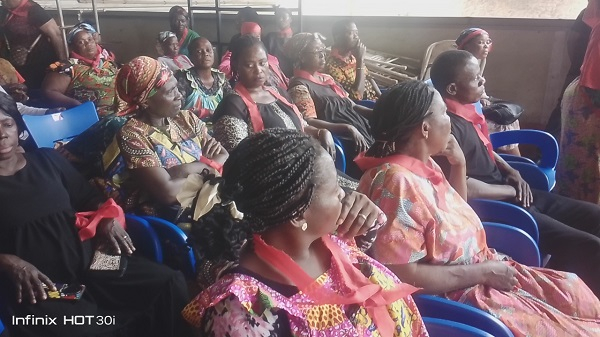
They have therefore made a heartfelt appeal for fairness, a safe and dignified place to conduct their businesses to enable them earn an honest living without jeopardising their lives. The traders also demanded transparency in the shop allocation process for Phase Two, emphasising that those who have faithfully supported the KMA through consistent ticket payments should be prioritised.
The fate of these Kejetia traders hangs in the balance, awaiting the intervention of authorities to honour their contributions and prevent further loss of life.
